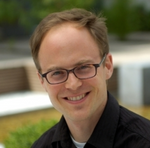Ecosia is not just producing enough solar energy to power all Ecosia searches with renewables – we are producing twice as much. Being 200% renewable means every search with Ecosia is crowding out dirty energy from the electricity grid.
In a way, solar energy is the north star of my professional life. Fifteen years ago, I joined a solar company called Q-Cells and led what became the world’s largest solar cell production a few years later. The basic technology had been developed, but solar energy was still rare and expensive. The task at the time was growth and cost reduction. Together with our suppliers, we had to improve machinery, tweak processes and adapt architectures.
A decade later, solar and wind energy have become the cheapest sources of energy in the world and are in the process of completely replacing old and polluting technologies like nuclear, coal, gas, oil or lignite.
Solar energy’s versatility is indeed breathtaking. It powers my watch. It also produces electricity in the latest and biggest addition to Ecosia’s solar portfolio: a share in Naturstrom’s 13MWp ground mounted solar system in Rottenbach, Bavaria, extending over a dozen hectares. Between the solar modules, an insect friendly meadow has been planted to improve biodiversity in an area dominated by conventional agriculture.
The system sells renewable electricity for a mind-blowing €0.05 per kWh. That includes our profit. This is so much cheaper than any new coal, gas, lignite or nuclear power plant, despite the open and hidden subsidies supporting them. Not to mention their cost on the natural world.
Ecosia has built four solar systems on rooftops across Germany so far and will be adding more, with a portfolio ranging from Beckdorf in the North, to Ettenbühl in the South; from Emsbüren in the West to Groß-Schacksdorf in the East. By doing so, we are not only supporting the transition to renewable energy. Often, we also pay for the removal of asbestos from those roofs in order to make the spaces habitable again. For instance, the buildings supporting our solar panels in Aue have been deserted for a long time. Now, people are living there, and a few workshops moved in, providing jobs for the local community.
Together with the solar system in Rottenbach, these solar plants don’t just generate enough electricity to power all Ecosia searches with renewable energy. They produce twice as much.
But we don’t stop there. We also co-invested into two systems in Kenya, made by ecoligo, a Berlin-based start-up that crowdfunds and builds commercial systems in the Global South. Here, solar contributes to a more stable electricity supply for its customers and often replaces diesel generators – by far the dirtiest and most expensive form of electricity generation.
In short, the technical challenges behind solar and wind energy have been solved. They now need to be deployed quickly, globally and on a massive scale. Today, renewable sources provide around 26% of global electricity. In an upcoming blog post, I’ll explore why that amount is growing so much slower than it could and what needs to be done by individuals, companies and politicians to speed up the global transition to renewable energy.
